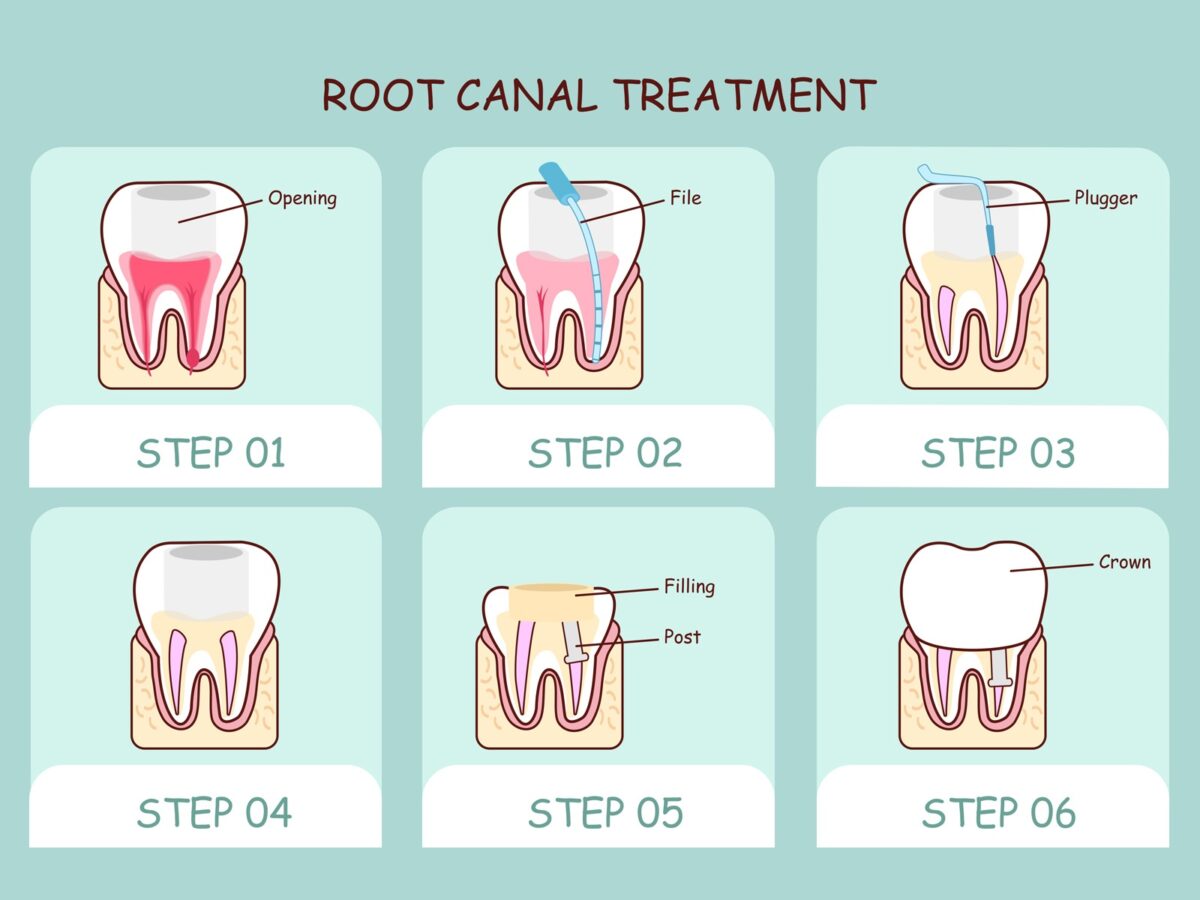Blog
Dental hygiene tips for healthy teeth & gums

How long is root canal recovery?
A root canal treatment is essential for addressing an inflamed or infected root canal, helping to save the innermost, nerve-filled part of a tooth. This area, known as the root canal, contains vital tissue and nerves that contribute to hot and cold sensations. During root canal treatment, the dentist carefully accesses the infected root canal by drilling into the tooth, removing all infected tissues, and filling the canal to restore optimal oral health. When a bacterial infection reaches the pulp chamber, there are few alternatives to prevent complete tooth decay, making a root canal treatment crucial.
If your dentist suggests a root canal treatment, there’s no need for alarm; this procedure saves or treats millions of teeth yearly and is a proven solution for preserving infected teeth. Thanks to advancements in technology, tools, and anesthetics, root canal treatments today are quicker, relatively painless, and more comfortable.
Healing Time for Root Canals
After most medical or dental procedures involving anesthesia, it’s common to experience some discomfort as the anesthesia fades. In the case of a root canal treatment, this discomfort is generally mild and manageable with over-the-counter pain relievers and good oral hygiene practices. Typically, a root canal will numb the treated area for up to four hours. If you experience mild discomfort within the first 24 to 48 hours, anti-inflammatory pain relievers can help alleviate it. Generally, a full recovery period is around three days, during which sensitivity and mild discomfort are expected.
The First to Third Days After a Root Canal
In the days immediately following a root canal treatment, you may notice sensitivity around the treated tooth. It’s still essential to gently brush and floss the area, as maintaining oral hygiene helps protect not only the treated tooth but also your surrounding teeth and gums. Your dentist might recommend specific oral care products as part of your root canal aftercare routine. If you experience pain beyond the typical four- to five-day recovery window, consider contacting your dentist, as a follow-up appointment may be needed to ensure proper healing.
Long-Term Care After Root Canal Treatment
Once your root canal treatment is complete, taking proactive steps in root canal aftercare ensures the treated tooth stays strong and free from complications. Here’s how to maximize your recovery and maintain a healthy smile long-term:
1. Prioritize Routine Dental Check-Ups
Regular dental visits are essential after a root canal treatment. During these appointments, typically every six months, your dentist will assess the treated tooth, looking for any signs of reinfection or wear. Routine X-rays may also be taken to evaluate the integrity of the root canal filling and ensure surrounding tissues are healthy.
2. Practice Good Oral Hygiene
Oral hygiene plays a critical role in root canal aftercare. To keep your mouth free from harmful bacteria:
- Brush your teeth twice daily using fluoride toothpaste.
- Floss once a day, paying special attention to the area around the treated tooth.
- Rinse with an antimicrobial mouthwash to help prevent bacteria buildup around the treated and neighboring teeth.
3. Avoid Hard or Sticky Foods
However, if the treated tooth is strong, it is advisable to refrain from biting hard substances such as ice nuts or sticky foods that can harm the filling or crown. This is even more significant until a permanent crown is put in place as the tooth is more susceptible to cracks.
When to Contact Your Dentist Post-Treatment
At times patients may have lingering sensitivity or discomfort in the treated tooth which may last for some time. If, however, there is pain, swelling, or any other symptom that has not subsided within the normal healing period, contact your dentist. Such symptoms may persist due to a problem with the root canal filling or the requirement for additional treatment.
Conclusion: The Role of Root Canal Aftercare in Long-Term Success
Following the proper root canal aftercare will also ensure that the tooth that has been treated will not develop any complications in the future. As much as root canal treatment is a valuable option when it comes to a tooth infection, the longevity of the treatment solely rests on how you maintain your teeth after the procedure. As per these recommendations, by practicing oral hygiene, and visiting the dentist regularly, you maintain your smile and your health.
Schedule your appointment with a Victoria dentist today and get the treatment on time!


